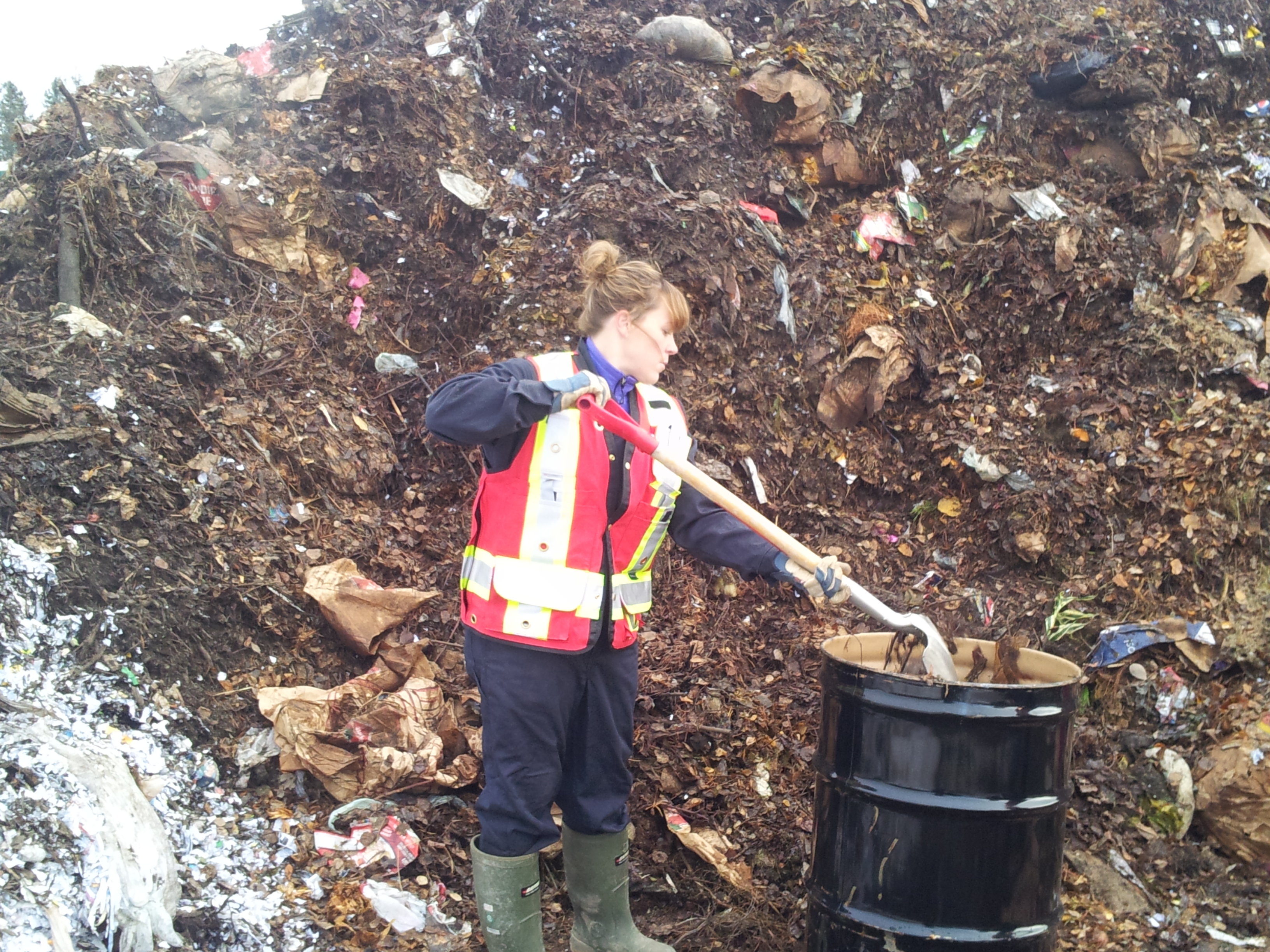From Banana Peels and Leaves to Heat and Electricity
News, Energy Supply, Environment
Oct 30, 2014 Comment Is it viable to turn food and yard waste into renewable energy for heating buildings and providing them with electricity? That’s what Yukon Energy is currently looking into, through a partnership with the Cold Climate Innovation Program of the Yukon Research Centre. It’s the first project of its kind ever tried in Yukon.
Is it viable to turn food and yard waste into renewable energy for heating buildings and providing them with electricity? That’s what Yukon Energy is currently looking into, through a partnership with the Cold Climate Innovation Program of the Yukon Research Centre. It’s the first project of its kind ever tried in Yukon.
This week, representatives from both companies spent time at the Whitehorse compost site collecting two 55-gallon drums full of organics; one barrel of food waste and the other of yard waste.
The material has been sent to Saskatchewan where there will be a trial done to find out how much energy (biogas) can be produced with the organics. The organic mixture, in various ratios of yard versus food waste, will have microbes added to it, and will then be put in a chamber and sealed so no oxygen can get at it. It’s heated to 38 degrees Celsius and left to ‘cook’ for 30 days.
During the trial, biogas is produced and collected. Scientists will measure the amount and composition of the biogas and they’ll analyze the chemical characteristics of our organics before and after the testing.
This information will give Yukon Energy a good idea of how much biogas could come from Whitehorse’s organic waste. Currently there’s approximately 2,200 tonnes of yard and food waste going to the Whitehorse landfill each year, although that is expected to increase as the City of Whitehorse moves forward with its enhanced diversion plans.
The next step of this study is to do a financial analysis to find out if this method of renewable energy production would be economically viable.
It's important to note that if this does move ahead as a bigger scale project, the food and yard waste used to generate heat and electricity would go on to be composted as it is now. This project would in no way reduce the amount or quality of compost generated at the landfill site.
Photo: Yukon Energy employee collects waste from the compost facility at the Whitehorse landfill.
Comments
Be the first to comment